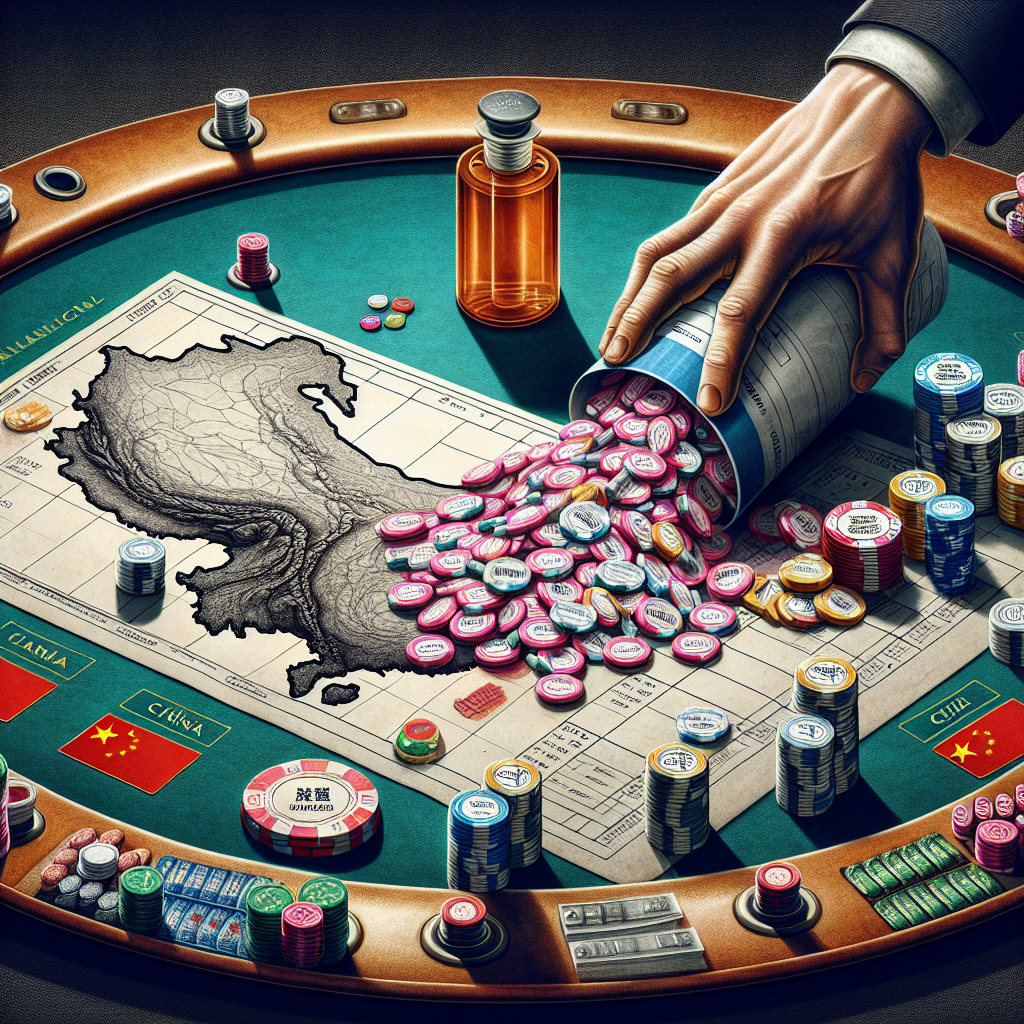Moderna’s Strategic Gamble in the Chinese Pharmaceutical Market
In a bold move that contrasts sharply with the retreat of many of its U.S. counterparts from China, Moderna has entered into agreements to establish a presence in the world’s second-largest pharmaceutical market. The biotech giant, best known for its development of a messenger RNA (mRNA) Covid-19 vaccine, is now looking to leverage its cutting-edge technology to research, develop, and manufacture medicines in China. This decision comes at a time when geopolitical relations between the U.S. and China remain tense, evoking both opportunities and significant challenges.
Background on Moderna’s China Strategy
While the full extent of Moderna’s plans were somewhat shrouded in secrecy, the news of its ambitions became public through a Chinese media outlet rather than an official announcement from the company. CEO Stéphane Bancel reflected on this dynamic, noting the complexities involved in communicating and executing business strategies in today’s globalized landscape. As many companies choose to pull back amid rising tensions and political scrutiny, Moderna is distinctly maintaining its ground.
The Market Dynamics at Play
China’s pharmaceutical market is characterized by rapid growth; valued at approximately $311 billion and expanding at an annual rate of 7%, it represents a tantalizing opportunity for Western drugmakers. However, accessing this market requires navigating various hurdles, including political opposition in the U.S. and concerns over intellectual property risks.
During an interview, Bancel emphasized that Moderna is committed to protecting its proprietary technologies, stating that the company does not plan to transfer any of its mRNA technology to its Chinese operations. In light of potential cybersecurity threats, the company has instituted enhanced protective measures to safeguard its innovations, indicating their awareness of the risks involved in this venture.
Opportunities vs. Challenges
Despite the enormous potential for revenue growth in China, the road is fraught with complications. For instance, Western drugmakers, including Moderna, often must contend with entering a market that operates under different pricing structures and competitive landscapes. Drugs sold in China typically must be offered at significantly reduced prices compared to those in the U.S., creating a pressure on profit margins—a trend noted by industry experts like Paul Zhang of Bluestar BioAdvisors.
Furthermore, the regulatory environment is characterized by unpredictability, with stories emerging of scrutiny directed at foreign executives within the pharmaceutical sector. AstraZeneca has faced recent investigations related to its leadership. As such, although the Chinese government aims to appear welcoming, the potential for backlash and regulatory challenges remains a real concern for Moderna.
Political Opposition in the U.S.
Moderna’s pivot towards China has not gone unnoticed, particularly in Washington. Prominent political figures, including Senator Marco Rubio, have expressed strong opposition to Moderna’s decision, arguing that it grants China access to valuable U.S. technology while jeopardizing national interests. Rubio has called attention to the fact that Moderna benefited from substantial U.S. government funding during the development of its Covid-19 vaccine, raising ethical questions regarding the company’s strategies going forward.
Collaborative Initiatives and Future Prospects
Despite the political hurdles and public scrutiny, Moderna is forging ahead with its initiatives in China. In August 2023, it entered into a collaboration with CARsgen, a Shanghai-based biotech company, to investigate an innovative pairing of mRNA-based cancer vaccines with CAR-T therapies for treating gastric and pancreatic cancers. This partnership underscores Moderna’s commitment to expand its research into new therapeutic areas and utilize its strengths in mRNA technology.
The company is also making strides towards establishing its manufacturing facility in Shanghai, with site work commencing in November 2023. As Moderna continues to seek regulatory approval for its Covid-19 vaccine in China and explore new therapeutic avenues, it is essential to monitor the interplay between its innovative aspirations and the intricate political landscape.
Conclusion: A Balancing Act for the Future
For investors and stakeholders alike, Moderna’s ventures into the Chinese market represent both a high-stakes gamble and a potential advancement of its global footprint. The promise of the Chinese pharmaceutical market is undeniable, yet the challenges posed by geopolitical dynamics and operational complexities cannot be overlooked. As Moderna charts its course in this complicated landscape, careful observation will be necessary to adjudge the outcomes of this endeavor. The delicate balance of innovation, security, and diplomacy will define whether Moderna’s gamble pays off in the long run.
As we look forward, it will be critical for investors to remain informed and watch for updates not only on Moderna’s operations but also on broader industry trends that may emerge from shifting geopolitical relations and market dynamics.
















